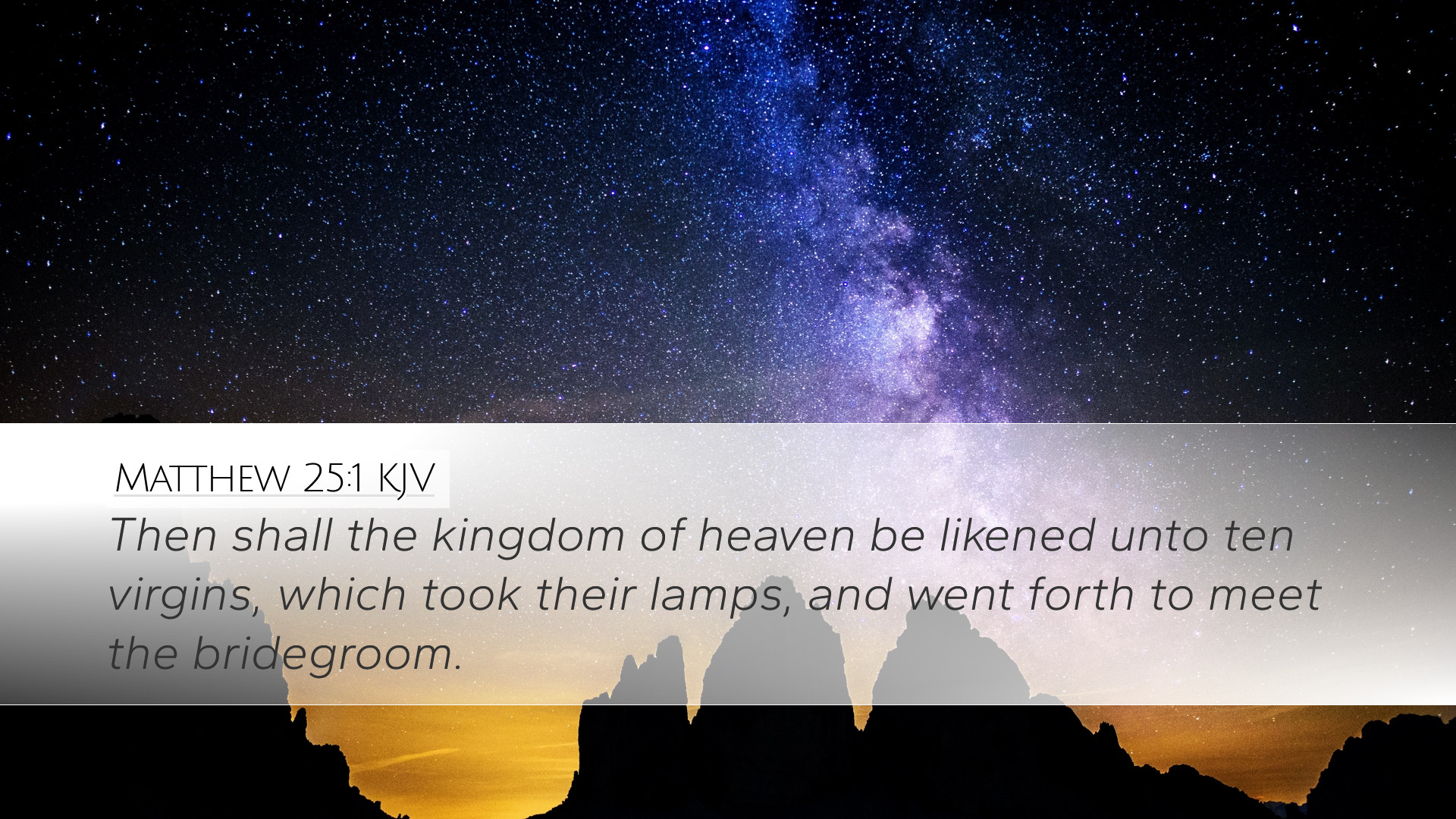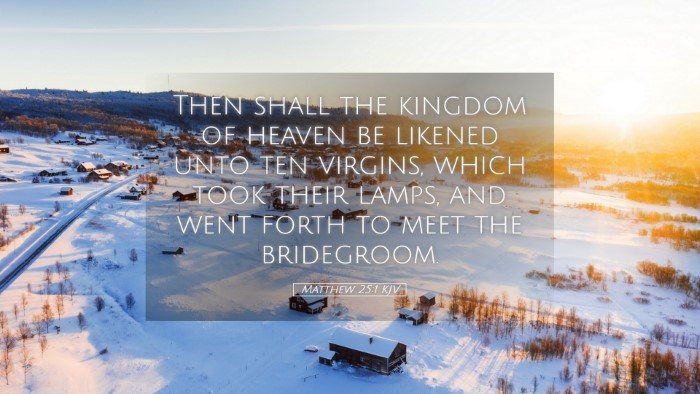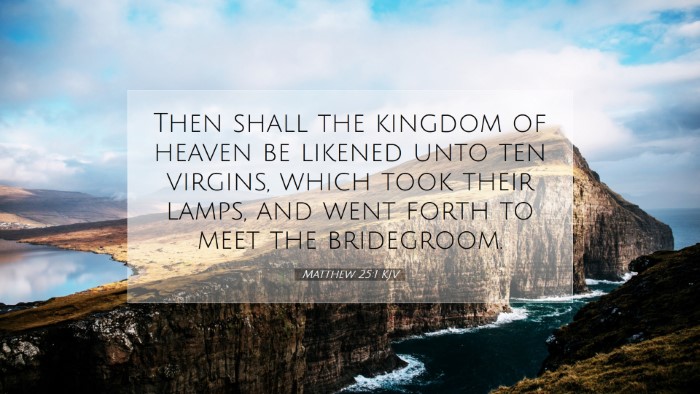Matthew 25:1 - An In-Depth Commentary
This verse introduces one of the most profound parables taught by Jesus, known as the Parable of the Ten Virgins. It is essential for understanding the nature of readiness and expectancy in the kingdom of heaven.
Verse Context
Matthew 25:1 states: "Then shall the kingdom of heaven be likened unto ten virgins, which took their lamps, and went forth to meet the bridegroom."
This marks the beginning of a series of teachings that delve into the preparedness necessary for believers as they await the return of Christ.
Commentary Insights
Understanding the Parable Structure
Jesus uses the cultural framework of a wedding feast, which was significant in Jewish society, to illustrate spiritual truths. The kingdom of heaven is likened to this event to draw attention to its joy, celebration, and the necessity of being prepared.
Matthew Henry's Insights
Matthew Henry describes the ten virgins as representing a collective of Christ's followers. He emphasizes that they all have lamps, which serves as a symbol of their profession of faith. However, not all possess the necessary oil, highlighting the distinction between superficial belief and genuine preparedness.
Henry notes, "All ten had lamps; but five were wise and five were foolish." He points out the folly of complacency and warns against those who, while appearing outwardly religious, lack a true relationship with Christ.
Albert Barnes' Observations
Albert Barnes elaborates on the characteristics of the virgins. He notes that lamps symbolize the light of their testimony and the hope of their salvation. The act of going forth signifies an active pursuit of Christ, yet the necessity of oil is critical for sustaining that light.
Barnes states, "The oil is the grace of God, the comforts of the Holy Spirit, and a habit of Christian virtue." This points to the fact that mere outward actions are insufficient; instead, an inner spiritual vitality is indispensable for enduring faith.
Adam Clarke's Remarks
Adam Clarke emphasizes the cultural context of the wedding customs, explaining that the bridegroom would often arrive later than expected. This applies to the need for vigilance among the virgins. Their readiness becomes a metaphor for the believer's expectation of Christ's second coming, as Clarke writes, "They that wait for Him must be found watching."
Clarke also stresses the importance of being filled with the Holy Spirit, suggesting that the wise virgins had a deeper understanding of their spiritual life, which allowed them to remain prepared in the face of delay.
Thematic Elements
- Preparedness: The parable illustrates the duality of preparedness among believers. Some are proactive, actively cultivating their faith, while others neglect this vital aspect.
- Judgment: It hints at the coming judgment where readiness will determine who enters the kingdom of heaven.
- Spiritual Vigilance: The need for ongoing vigilance and spiritual awakefulness is paramount, as the timing of Christ's return is unknown.
Application to Modern Believers
As pastors, students, and theologians reflect on this passage, several practical applications emerge:
- Self-Examination: Assess one's spiritual state. Are we merely carrying a lamp, or do we have oil—spiritual sustenance that keeps our faith aglow?
- Community Engagement: Encourage communal readiness within congregations. This parable serves as a rallying cry for believers to support one another in spiritual growth.
- Evangelistic Urgency: There is a call to spread the gospel, ensuring that others are invited to participate in this wedding feast.
Conclusion
Matthew 25:1 introduces the theme of readiness for the coming of Christ through one of His most memorable parables. The insights provided by Matthew Henry, Albert Barnes, and Adam Clarke enrich our understanding of the necessity of spiritual preparedness. Believers are challenged not just to possess the light of faith but to ensure they are filled with the oil that sustains their testimony through uncertain times. In this parable, the call is clear: be wise, be vigilant, and be prepared, for the bridegroom's arrival is certain, though the hour is unknown.


